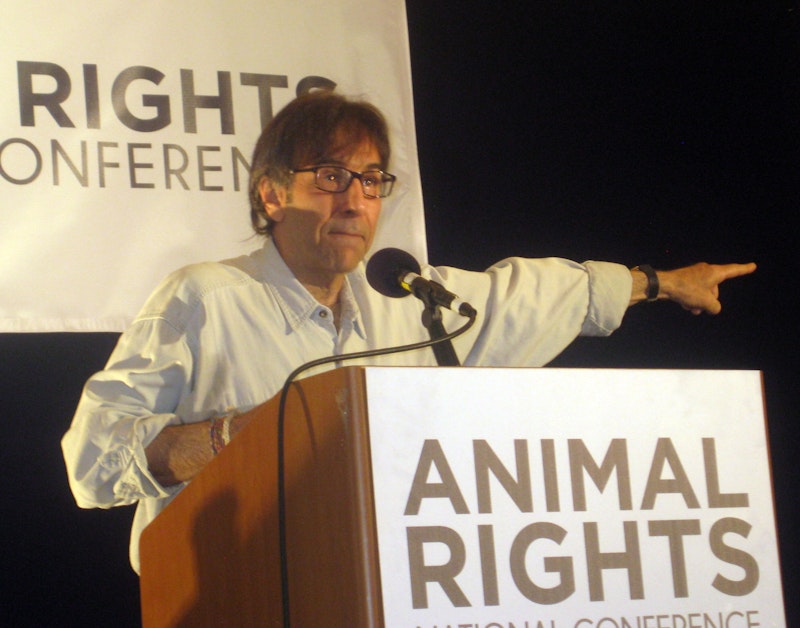Few writers have influenced my thinking on animals more than Gary Francione. His work served as a welcome and clarifying antidote to the hard utilitarianism of Peter Singer. But over time, I couldn't ignore the extent to which that clarity emerged from dogmatism. Among other things, Francione’s opposition to “single-issue” campaigns, reformist efforts, and confrontational tactics seemed to discourage just about every form of activism.
I recently checked his website and what I found was a remarkably short-sighted post about clean meat. The title asked whether animal advocates should promote cellular agriculture. "That’s an easy question," Francione wrote in the article's text. "The answer is: Absolutely not." I shouldn't have been surprised. But I was struck by how casually he dismissed technology that could save billions of animals a year.
Francione continued, presenting outdated information to his readers about how clean meat is made. "The reason is simple: cultured meat involves taking cells from living animals; it also involves growing those cells in an animal medium, such as fetal serum from calves or horses," he wrote. "So animals are killed in the process of producing cultured meat." That's not necessarily the case anymore.
As the executive director of the Good Food Institute pointed out on his organization's website, cellular agriculture companies are phasing out the use of fetal bovine serum. "FBS is extremely inconsistent from batch to batch, making it difficult to create consistency in the final product—which is absolutely critical in the mass production of any food," Bruce Friedrich wrote. "Also, the stuff is incredibly expensive—there is no way clean meat will ever be commercially viable if FBS is used."
Paul Shapiro struck a similar note in his book Clean Meat: How Growing Meat Without Animals Will Revolutionize Dinner and the World. "Just one liter of fetal bovine serum can cost around $500, making it a financial, as well as an ethical, problem," he wrote. "Fortunately, several cellular ag companies have already completely done away with such serum, typically by using plant-based or synthetic serums or by simply figuring out ways of going serum-free."
Friedrich didn't let the early use of fetal bovine serum cloud his judgment of clean meat, and—in the context of a global animal holocaust, when the potential benefits are so great—that's the correct approach. "While I resonate with that concern as a 30-year vegan myself, the idea that even vegan foods are entirely cruelty-free is an illusion," he wrote. "As just one example, animals die by the millions in harvesting, even as farmers kill millions more 'pest' animals intentionally.”
With approximately 80,000 followers on Facebook and 10,000 on Twitter, Francione's reach is comparatively small. The flesh-eating majority are the ones who really need to be convinced about the benefits of cellular agriculture. Still, Francione's audience should be the technology's most fervent promoters, and it's unfortunate to see him lead them astray.

